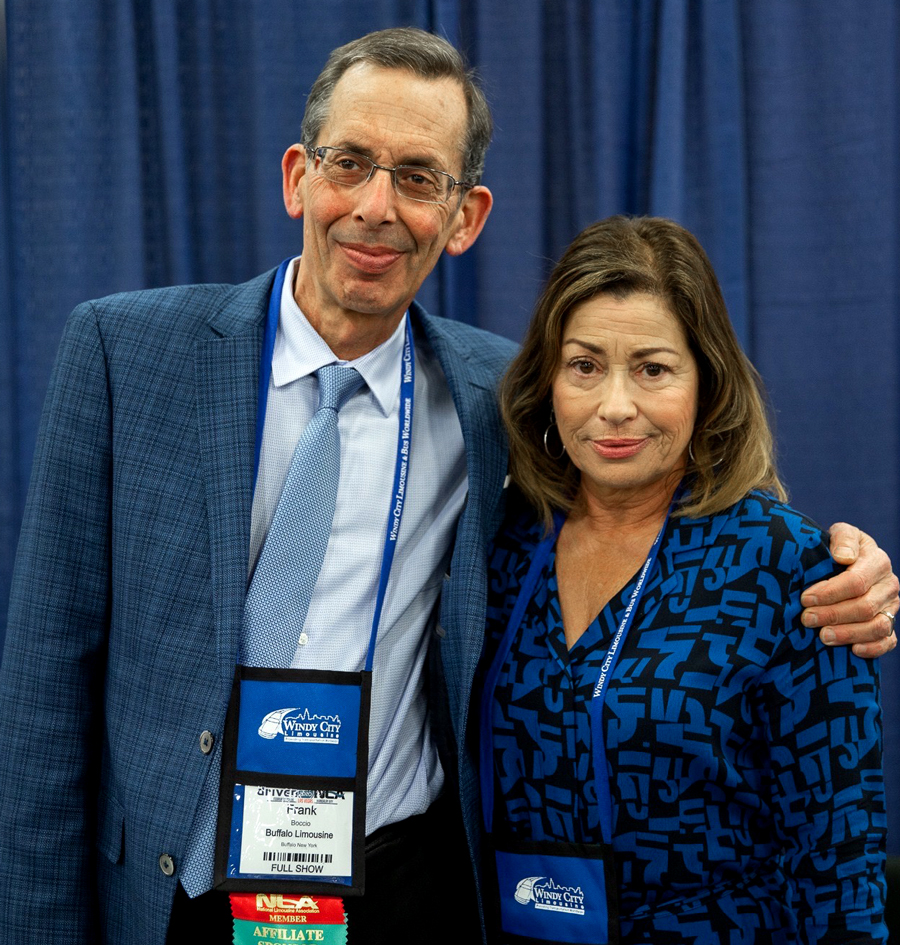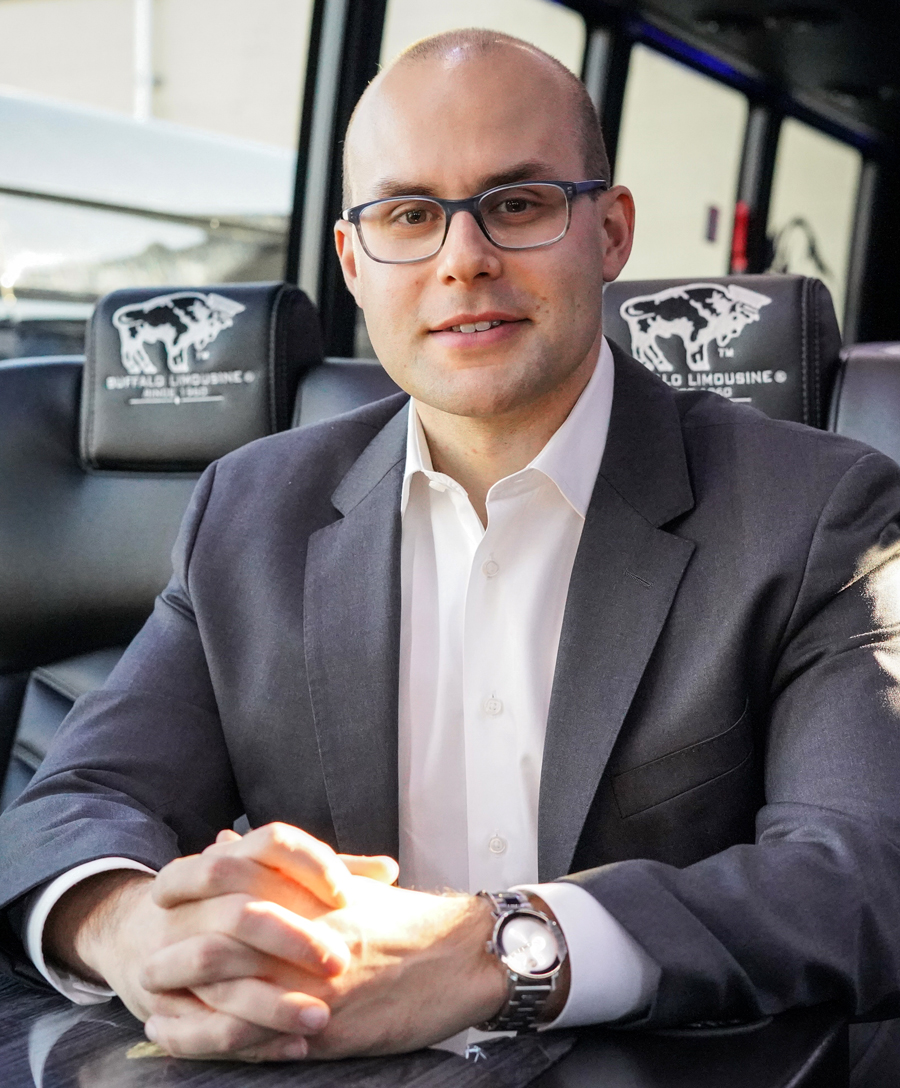- Details
- Category: Industry News
The United Motorcoach Association (UMA) hosted its weekly online Town Hall this past Thursday, April 16, led by UMA Chairman Jeff Polzien, Interim President and CEO Larry Killingsworth, and Vice President Ken Presley. Hundreds of members participated and chimed in with numerous questions and comments.
The SBA’s Paycheck Protection Program (PPP) and Economic Injury Disaster Loans (EIDL) were again the first order of business as both programs had been reported to reach their max that morning, halting applications and leaving millions of small businesses without relief. Congress is still negotiating additional funding for PPP, which has been stalled by both parties attempting to add specifics to the bill such as funding for hospitals, state and local government, and increased COVID-19 testing support.

According to CNN in a 4/21 interview with Senator Chuck Schumer (D-N.Y.): “Of the $310 billion for the Small Business Administration's Paycheck Protection Program, $125 billion will be sent exclusively to the unbanked, to the minorities, to the rural areas, and to all of those little mom-and-pop stores that don't have a good banking connection and need the help.”
Presley and the UMA’s lobbyist Becky Weber of Prime Policy Group updated participants on their communication with Congress. Presley thanked the more than 6,000 UMA members who sent nearly 26,000 letters and emails to their representatives, noting that their efforts were making a difference. Killingsworth said that the emails and letters were a phenomenal response, but also encouraged members to make phone calls as they have been very effective.
UMA member John Grzywacz of CIT Signature Transportation shared that he has a successful phone conversation with Senator Joni Ernst (R-Iowa) who offered her optimism: 1. Congress could still work together on the next round, so don’t lose hope; 2. Craft a concise, simple ask; 3. Reach out and call all representatives since they are stuck home in their districts—be the squeaky wheel and make your situation known.
Member Scott Riccio of Northeast Charter also shared that he had been contact with Senator Susan Collins (R-Maine), noting that she was receptive to a meeting, and had a call scheduled soon with Senator Angus King (I-Maine). Riccio is also attempting to get a meeting with Representative Jared Golden, a Maine Democrat.
As Congress works on the next relief package, Presley and Weber sent a letter to Secretary of the Treasury Steve Mnuchin regarding some flexibility of the PPP forgiveness. As the bus and motorcoach industry is very capital-heavy, they hope to have the forgiveness ratios of 75 percent for salaries and 25 percent for mortgage interest, rent, and utilities modified to a 50/50 split with vehicle interest included and forgiven. Presley said that other industries had also been having an issue with the breakdown, and that the “ask” could be accomplished by a simple administrative change. They also requested some flexibility with the forgiveness window, through December 31, as the travel and tourism industry will have a slow and staggered comeback throughout the country.
Town Halls are held every Thursday at 2PM ET. Information to join is available at uma.org.
[04.21.20]
- Details
- Category: Industry News
Parking and storing fleet vehicles for a long period of time is a concept that is foreign to many operators. As our industry struggles with this unprecedented time, here are some tips to help keep your fleet in peak condition until you’re ready to return them to duty. This advice is for short-term storage—around two or three months. If you plan to park and store for a longer period, additional care will be needed. This list was specifically compiled for buses and motorcoaches; check out our tips for sedans and SUVs here.

Before Storage
- Clean all interior surfaces with CDC-compliant disinfectant
- Change oil and filter and perform thorough mechanical inspection, including topping off all fluids
- Thoroughly wash and apply quality coat of wax to preserve exterior (if needed)
- Fill the fuel tank (to prevent moisture from building up in tank) and consider adding a fuel stabilizer
- Inflate all tires to proper PSI
- Put microfiber towels under the wiper blades
- Plug the exhaust with a towel to deter critters and dirt (don’t forget to remove before starting and replace)
- Use or close sunshades if stored outside
- If you have one, use an ozone machine prior to storage to kill bacteria that can cause unpleasant odors
- Place chocks between tires
- Suspend ELDs or GPS systems
- Turn off the battery, if applicable (some manufacturers recommend disconnecting battery cables if stored for more than two weeks)
- Flush out any restrooms and drain completely for storage
During and Removing From Storage
- Continue to do 90-day inspections and annual inspections while stored
- Remove exhaust plug, reconnect battery, and drive bus for at least 15 minutes every two weeks (around lot if reduced insurance; on the road if fully insured)
- Perform stopping distance check
- Check for any leaks or body damage
- Check for any signs of animal damage or nesting, especially wires and hoses
- Document, document, document
Special thanks to Barry Gross of The Driver Provider, Tom Holden of Bus Advisors, John Pizzi of Windy City Limousine & Bus, and Chris Przybylski of LBC Fleet, Safety & Compliance for helping us to compile this list. As always, check with your specific bus manufacturer for additional maintenance guidelines.
Additional Advice From Operators
“The best practice would be to uninstall the batteries and bring into the garage and put on a trickle charge. You need to run the bus weekly at a higher idle speed for at least 30-45 minutes. The idea of pulling the batteries and then reinstalling them to run the bus seems to be a lot of work, but it’s really the only way to be sure the cells are ready to start the bus as quickly as you might need to use the bus. I would not worry about a fuel additive during the summer months. You may want to consider replacing the fuel filter on the bus before driving it long distances.”
—Tom Holden of Bus Advisors
“We run our [idle] motorcoaches for one hour a week to charge the batteries, purge the moisture out of the system through the air dryer and purge valves, and empty the air tanks after that hour to get all water and moisture out of the system. Once they’re completely drained of air, I shut the batteries off on each vehicle. While they’re running, I’ll kick on the heat or AC to cycle the system, depending on outside temperature. While running I’ll go through a quick pre-trip inspection and check tires, lights, belts, and fluids. As for the bathrooms, all the systems have been flushed out and refilled with new fresh water solution and chemicals. Because it can still get below freezing here in the Chicago area, we add alcohol to the solution so it cannot freeze. If the system had fresh water and were to freeze, it would expand and crack the plastic storage tanks for the toilets. Our transit buses also get run once a week. Once warmed up, I drain the air tanks and shut the batteries off. We also run our 39-passenger and fewer diesels once per week for one hour. Same procedure as above. All gasoline vehicles can sit for a longer period of time without any worry about the air system, moisture, or lavatory issues obviously.
“While this pandemic is happening, we are staying up to date on all safety and annual inspections. This is the perfect time to get all vehicle warranty or recall work done. We have more than 20 vehicles having work done right now. I’ve been able to get a lot of detailing and cleaning work done on the vehicles as well. Ten vehicles in the past two weeks have been touched up with paint, buffed and waxed, and have had full interior details with shampoo and disinfectant. We’ve been cleaning all the evaporator air conditioning filters along with cabin air filters.”
–John Pizzi of Windy City Limousine & Bus
Did we miss anything? Let us know! Send an email to susan@chauffeurdriven.com.
[04.21.20]
- Details
- Category: Industry News
Western New York ground transportation fixture Buffalo Limousine is excited to announce their 60th anniversary of business. Established in 1960 as an offshoot of John and Camille Patti’s funeral service business, the company is recognized as a pioneer in their region, and still adheres to the founders’ credo that “customer service is key.”
 Buffalo Limousine Owners Frank and Carla Boccio
Buffalo Limousine Owners Frank and Carla Boccio
“Customer Service and more customer service was instilled in all of us by my father,” says Carla Boccio, who purchased the family company with her husband Frank in 2000. “We learn something new from our customers every day.”
Today, Buffalo Limousine serves a wide client base, which includes retail, corporate, and VIP/celebrity, as well as exclusive ground transportation contracts with many large companies. And through their extensive affiliate network, the company offers service in 550 cities worldwide.
 Buffalo Limousine General Manager Nick Boccio
Buffalo Limousine General Manager Nick Boccio
Buffalo Limousine’s all-black fleet ranges from sedans and SUVs to executive minibuses and limobuses.
While the company’s milestone seemingly couldn’t come at a worse time for the industry, Boccio remains confident that Buffalo Limousine will weather the storm.
“With age comes wisdom—the adage holds true for companies as well as the people who operate them,” says Boccio.
The company plans to get through the current crisis by maintaining their business philosophies of aiming to be the best and working smarter instead of harder. Boccio feels fortunate that Buffalo Limousine was in a sound position when the COVID crisis hit full force.
A forward-thinking enterprise, the Boccios have always had an eye on future innovations and growth, whether it was adding cellphones to their cars in the ‘70s or being the first in their market with stretch limos in the ‘80s. Today, the company is looking at acquisitions as the next stage of growth. A key component in the company’s future is the family’s third-generation addition: General Manager Nick Boccio came aboard in 2016 and is already a pivotal force to take Buffalo to the next milestone.
“If I've learned anything over the past three years being at Buffalo Limousine it is that customer service remains the foundation of our business being successful,” says Nick. “As far as being the third generation, it makes me happy to know that only a small percentage of family businesses make it that far. Since taking a significant leadership and management role, I would say that ‘working smarter and not harder’ is my goal. I looked at so many minor processes and thought, ‘How in the world have we been doing this for so long?’"
Visit buffalolimousine.com for more information.
[04.20.20]

